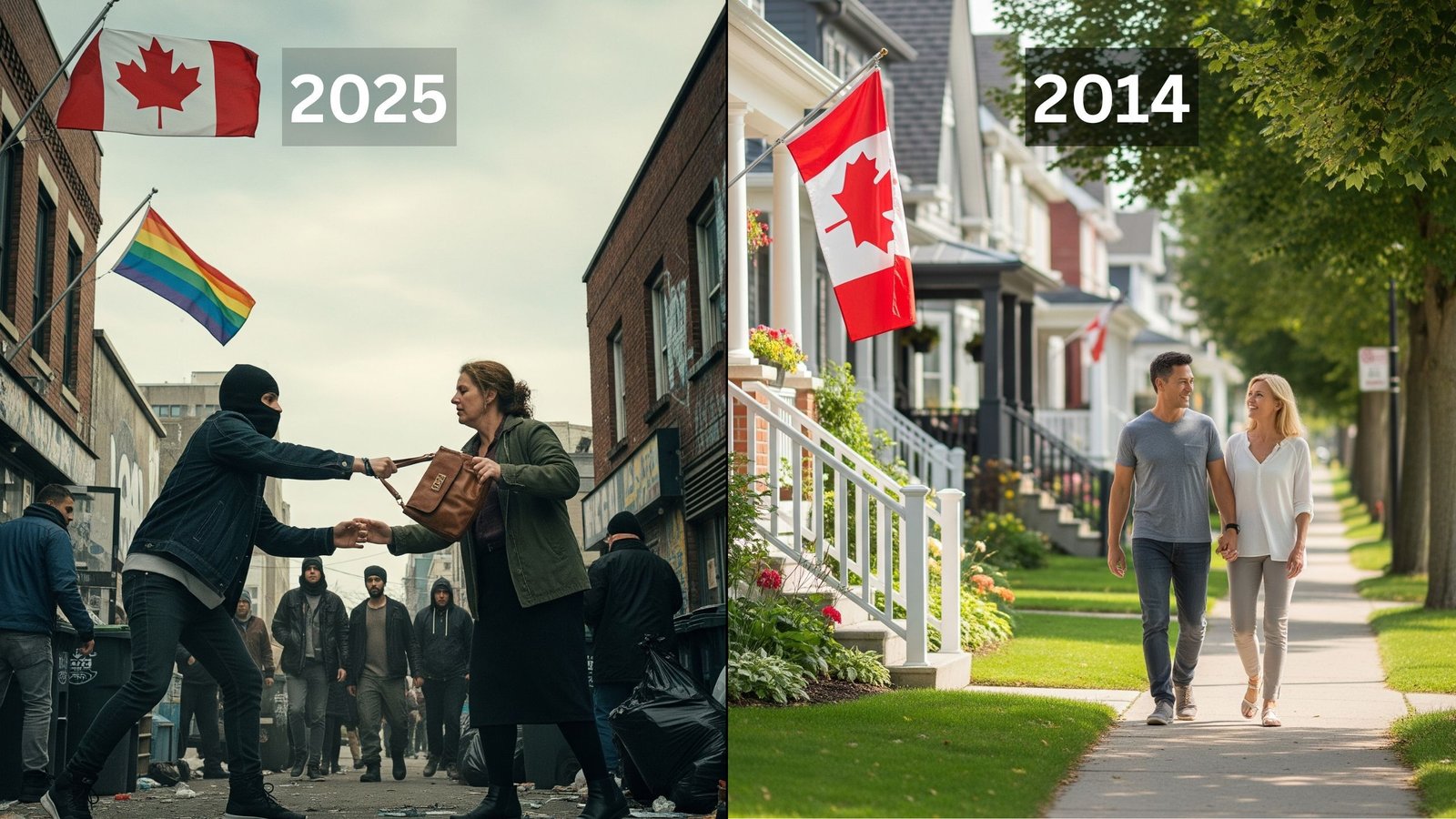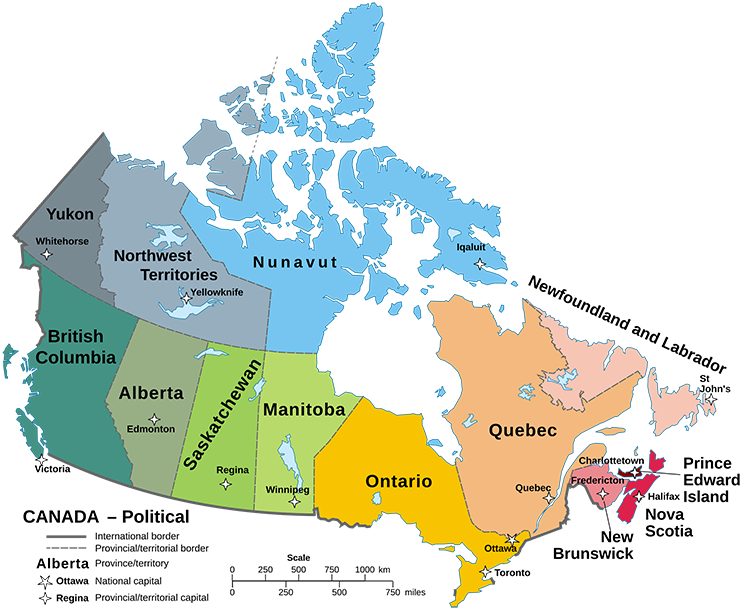Canada
Crowned as the Most Shithole Nation, 2015–Present 🏆

Canada's Decline: A Nation Burdened by Debt and Misrule
Canada, once a beacon of economic prosperity and social stability, now stands as a cautionary tale of decline. A decade of governance under the Liberal Party, first led by Justin Trudeau and now by Mark Carney following the 2025 elections, has left the nation grappling with soaring poverty, crumbling infrastructure, and a future mortgaged by unprecedented debt. Despite the change in leadership, the government remains unchanged—same ministers, same policies, same trajectory toward economic ruin. From a country with the wealthiest middle class and a GDP rivaling the United States, Canada has fallen into a quagmire of 25% poverty rates and a GDP half that of its southern neighbor.
A Decade of Decline
 In 2015, Canada was a global success story. Its middle class was the wealthiest in the world, its economy robust, and its social fabric strong. The election of Justin Trudeau and the Liberal Party promised progress, inclusivity, and a brighter future. Instead, the past decade has been marked by mismanagement, corruption, and policies that have eroded the nation’s foundations. Progressive liberalism, unchecked mass immigration, and fiscal irresponsibility have driven Canada into chaos. Cities once known for safety now struggle with rising crime, higher than the United States, housing has become unaffordable, and economic opportunities have dwindled.
In 2015, Canada was a global success story. Its middle class was the wealthiest in the world, its economy robust, and its social fabric strong. The election of Justin Trudeau and the Liberal Party promised progress, inclusivity, and a brighter future. Instead, the past decade has been marked by mismanagement, corruption, and policies that have eroded the nation’s foundations. Progressive liberalism, unchecked mass immigration, and fiscal irresponsibility have driven Canada into chaos. Cities once known for safety now struggle with rising crime, higher than the United States, housing has become unaffordable, and economic opportunities have dwindled.
The 2025 elections offered a chance for change, but the transition to Mark Carney as Prime Minister brought no real shift. The same Liberal ministers, with their entrenched agendas, remain in power. Carney, a former Bank of Canada governor, was heralded as a steady hand, but his leadership has so far been a continuation of the status quo and a formidable liar. The government’s policies—rooted in expansive social programs, lax immigration controls, and ballooning deficits—have accelerated Canada’s decline, leaving citizens to bear the consequences.
The Debt Crisis: Fueling Inflation and Poverty
At the heart of Canada’s troubles lies its staggering national debt. Under Trudeau’s tenure, and now Carney’s, the government has borrowed heavily to fund ambitious programs, from universal healthcare expansions to climate initiatives and immigration support systems. While these policies were sold as investments in the future, they have instead fueled rampant inflation, eroded purchasing power, and deepened poverty. The poverty rate, now at 25%, reflects the harsh reality faced by millions of Canadians who struggle to afford basic necessities.
Inflation, driven by excessive government spending has made life unaffordable for many. Housing prices have skyrocketed, with average home costs in major cities like Toronto and Vancouver exceeding $1 to $2 million. Wages, meanwhile, have stagnated, leaving families trapped in a cycle of debt and despair. The government’s response—more borrowing to fund relief programs—has only worsened the problem, creating a vicious cycle of debt-fueled inflation.
This debt is not just a burden for today’s Canadians; it is a generational theft. Children born today will inherit a nation drowning in red ink, with interest payments on the debt projected to consume a growing share of the federal budget. By 2030, estimates suggest Canada’s debt-to-GDP ratio could exceed 70%, a level that constrains economic growth and limits future governments’ ability to respond to crises. The mistakes of today’s adults—driven by short-term political gains—will shackle future generations to a lifetime of repayment.
The Political Class: Enriching Themselves at Public Expense
While Canadians struggle, the political elite thrive. Politicians across all parties have insulated themselves from the economic pain felt by ordinary citizens. Members of Parliament enjoy generous salaries, pensions, and expense accounts, living like modern-day royalty while taxpayers toil to fund their largesse. Under Canada’s parliamentary system, which critics argue resembles a monarchy in its deference to power, politicians wield unchecked influence, rewarding themselves and their allies with lucrative contracts and patronage appointments.
The Liberal government, in particular, has faced accusations of corruption. Scandals have eroded public faith, painting a picture of a government more concerned with self-preservation than public service. Yet, other parties are not blameless. Opposition leaders have failed to offer meaningful alternatives, often mimicking the same policies in their bid for power. The result is a political system where greed and self enrichment prevails, leaving taxpayers as modern-day peasants, surrendering nearly 50% of their income to taxes that fund bloated bureaucracies, debt interest, and politicians’ lavish lifestyles.
The Tax Burden: Enslaving the Working Class
Canada’s tax system has become a crushing weight on its citizens. With combined federal and provincial taxes consuming half of many Canadians’ incomes, the average worker labors for six months each year just to pay the government. These taxes fund not only mediocre and mismanaged services but also the growing interest on the national debt, which diverts billions annually from healthcare, education, and infrastructure. The tax burden, coupled with high living costs, has left families with little disposable income, stifling economic mobility and fueling resentment.
For Canada’s children, the future is even bleaker. As the debt grows, so too will the tax burden required to service it. Young Canadians entering the workforce in the coming decades will face higher taxes, fewer opportunities, and a diminished quality of life—all to pay for the excesses of today’s leaders. This intergenerational inequity is a betrayal of the social contract, leaving the next generation to clean up the mess created by their elders.
The Path Forward: A Catastrophic Collision Course
Canada’s future hangs in the balance, and the outlook is grim. The Liberal government’s unchecked mass immigration policies, particularly from third-world countries, have overwhelmed the nation’s social and economic systems. Many newcomers, lacking education or skills, have abused the asylum system, lingering for years without contributing to the workforce. This influx has strained public resources, with social safety nets buckling under the weight of unsustainable demand. Worse, lax policies have allowed hardcore criminals, gangsters, and organized crime syndicates to infiltrate government, communities, bringing violence and instability. Laws that seem to protect these elements over law-abiding citizens have eroded trust in institutions, setting the stage for a massive failure of Canada’s social fabric.
The consequences of these policies are already visible. Crime rates are soaring, with urban centers like Toronto and Vancouver grappling with gang violence and drug trafficking. The influx of incompatible cultural groups has led to the formation of insular, secular communities that reject integration. These groups, growing in number and influence, are beginning to demand autonomy or even their own state within Canada. Left unchecked, this could escalate into violent conflicts over land and resources, fracturing the nation. What we see today—rising tensions, sporadic violence, and social division—is just the beginning. Tomorrow, without drastic change, the consequences will be devastating, potentially tearing Canada apart.
Compounding this social crisis is the economic one. The government’s reliance on borrowing to fund immigration and social programs has fueled inflation, deepened poverty, and saddled future generations with crushing debt. Infrastructure continues to crumble, and economic competitiveness wanes as businesses flee high taxes and unstable conditions. Mark Carney’s government, staffed with the same ministers who oversaw this decline under Trudeau, shows no sign of reversing course. New spending commitments only inflate the debt further, while opposition parties remain too fragmented to offer a viable alternative.
For ordinary Canadians, hope is fading. Grassroots movements demanding immigration reform, fiscal responsibility, and political accountability are growing, but they face fierce resistance from a self-serving political elite. Without a radical shift in policy—tighter immigration controls, aggressive debt reduction, and an end to political corruption—Canada risks descending into chaos. The nation’s children, already set to inherit a mountain of debt, will also face a fractured society and a weakened economy, paying the price for the greed and mismanagement of today’s leaders.
Tragedy Of Epic Proportions
Canada’s fall from grace is a tragedy of epic proportions. A country that once stood as a model of prosperity now teeters on the edge of economic collapse, burdened by debt, crippled by taxes, and governed by a self-serving elite. The Liberal government, under Justin Trudeau and now Mark Carney, has presided over a decade of decline, leaving Canadians poorer, less secure, and less hopeful. The nation’s children, who will inherit this mess, deserve better. Canada’s story is a warning to the world: unchecked debt, corrupt governance, and reckless immigration policies can bring even the mightiest nation to its knees. The question now is whether Canada can find the will to change before it’s too late, unfortunately it might be already too late.